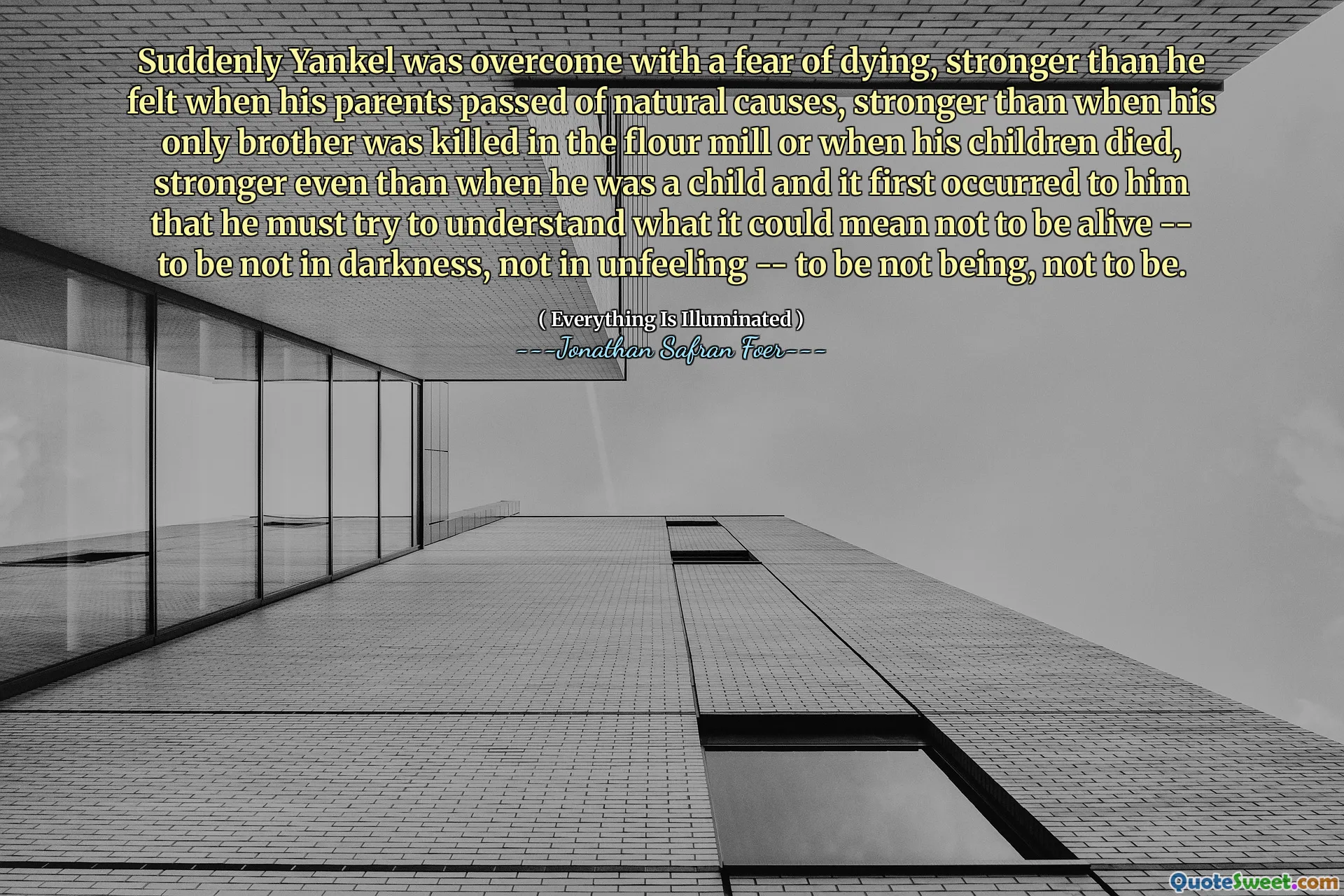
Suddenly Yankel was overcome with a fear of dying, stronger than he felt when his parents passed of natural causes, stronger than when his only brother was killed in the flour mill or when his children died, stronger even than when he was a child and it first occurred to him that he must try to understand what it could mean not to be alive -- to be not in darkness, not in unfeeling -- to be not being, not to be.
In the narrative, Yankel experiences a profound fear of death that eclipses previous losses he has endured. This fear surpasses the grief he felt when his parents died, his brother was killed, and even the pain of losing his children. It is a deeper, more existential dread that compels him to reflect on the nature of life and existence itself.
This moment of existential contemplation reveals Yankel's struggle with the concept of nonexistence. It prompts him to confront the idea of what it means to be alive versus the emptiness of not being, highlighting the inevitable human confrontation with mortality and the search for understanding in the face of death.





